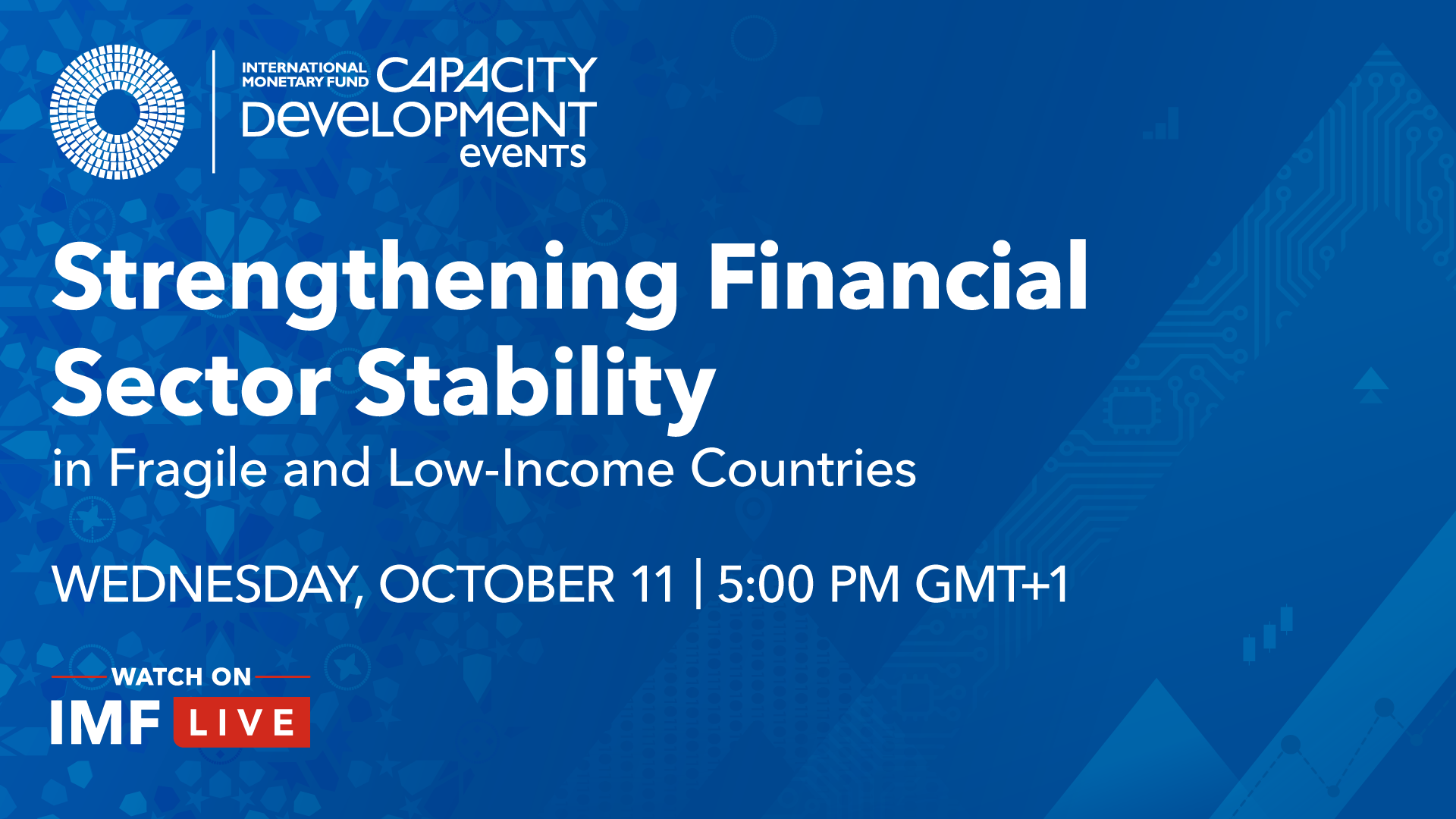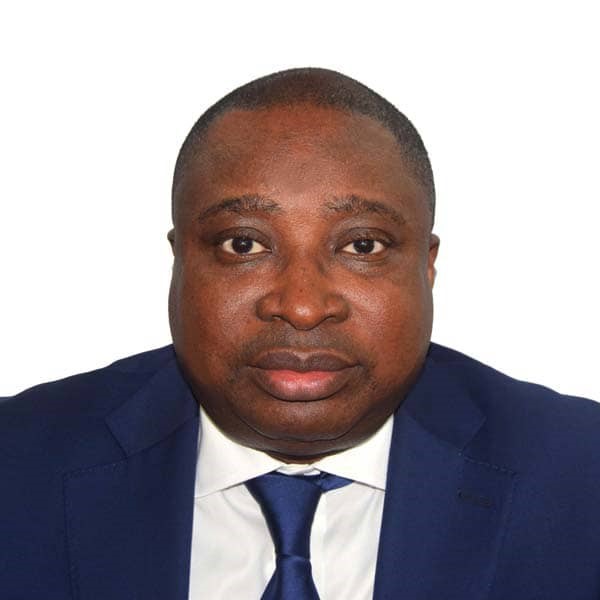Wednesday, Oct 11, 2023 | 05:00 PM - 05:30 PM
Location: AB02 Irhoud

OVERVIEW
Financial sector stability is a prerequisite for sustainable growth and inclusion. Strengthening financial stability frameworks can be challenging in low-income or fragile and conflict affected states, where human resources are scarce and initial capacity is low. In such cases, it is essential to prioritize and sequence capacity building over a longer time and provide hands-on expert support. The Financial Sector Stability Review (FSSR) proposes a well-structured approach to designing financial sector reforms based on a thorough diagnostic of capacity gaps. FSSR recipient countries benefit from a well-prioritized package of technical assistance, in many cases supported by resident technical advisors, who work in close partnership with the authorities. This event will present how the IMF, with donor support through the Financial Sector Stability Fund, has helped the authorities from The Gambia and Sierra Leone catalyze reforms in their financial stability frameworks.
SPEAKERS
Oana Croitoru is a Division Chief in the Monetary and Capital Markets Department (MCM), where she leads the Technical Assistance Strategy Division. In this capacity, she oversees the overall MCM delivery of capacity development (CD), including coordination with country authorities and various external partners. Before that, she led the successful transformation of the IMF online learning program (2019-2022), helped design and implement the IMF Capacity Development Strategy and other strategic initiatives (2017-2018), and provided policy advice and technical assistance on crisis management and bank resolution (2010-2017). Prior to joining the IMF, Ms. Croitoru served as Advisor to the First Deputy Governor of National Bank of Romania and member in the Supervisory Committee. She had previously worked at the World Bank in both Washington DC and Bucharest. She has a Ph.D. in Economics from the Academy of Economic Studies in Bucharest and a post graduate degree in International Finance from the George Washington University.
 |
||
| Oana Croitoru Division Chief, Monetary and Capital Markets Department, IMF |
||
 |
||
| Buah Saidy Governor, Central Bank of The Gambia |
||
Governor Saidy was appointed the Governor of the Central Bank of The Gambia, in May 2020. Prior to his appointment, Governor Saidy was the Permanent Secretary at the Ministry of Finance and Economic Affairs. Governor Saidy has over 40 years of work experience in the finance and economic sector. He previously worked at the International Monetary Fund (IMF) as a Senior Advisor to the Executive Director for several years. At the IMF, he worked with other Executive Board members to assist the IMF and its member countries to respond to the 2008/2009 global economic and financial crisis, among other things. Upon his return from the IMF in 2018, he was appointed as the Senior Advisor to the Governor of the Central Bank on economic policy matters.
 |
||
| Dr. Ibrahim Stevens Acting Governor, Bank of Sierra Leone |
||
Dr. Ibrahim Stevens presently serves as the Acting Governor of the Bank of Sierra Leone, a position he has held since March 2023. He was appointed Deputy Governor in July 2014 (a five-year term) and was reappointed in 2019. With the enactment of the Bank of Sierra Leone Act 2019, Dr. Stevens assumed the role of First Deputy Governor, responsible for Monetary Stability. Prior to his tenure at the Bank of Sierra Leone, he was Country Programme Director at the International Growth Centre (IGC), at the London School of Economics, Macroeconomic Adviser to the Ministry of Finance and Economic Development in Rwanda. Before Rwanda, he was at the Bank of England for a decade, where he contributed to various areas, including Financial Stability, Monetary Analysis, and as a Senior Adviser at the Bank's Centre for Central Banking Studies (CCBS). In the Bank of Sierra Leone, Dr. Stevens has spearheaded a range of critical reforms, covering monetary policy, financial system stability, currency management, financial inclusion, digital finance, and payment systems.